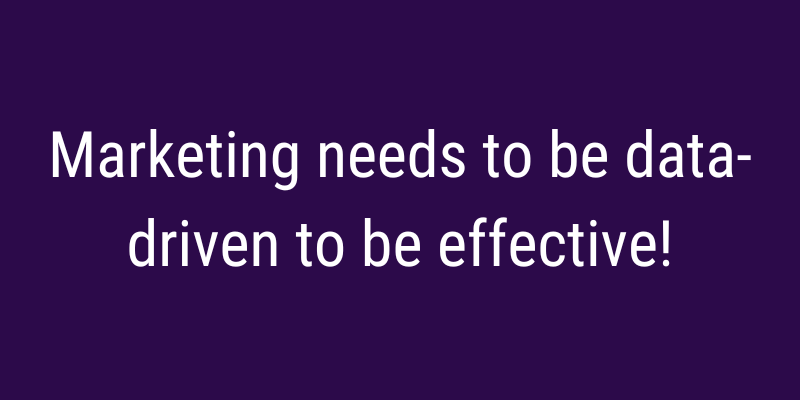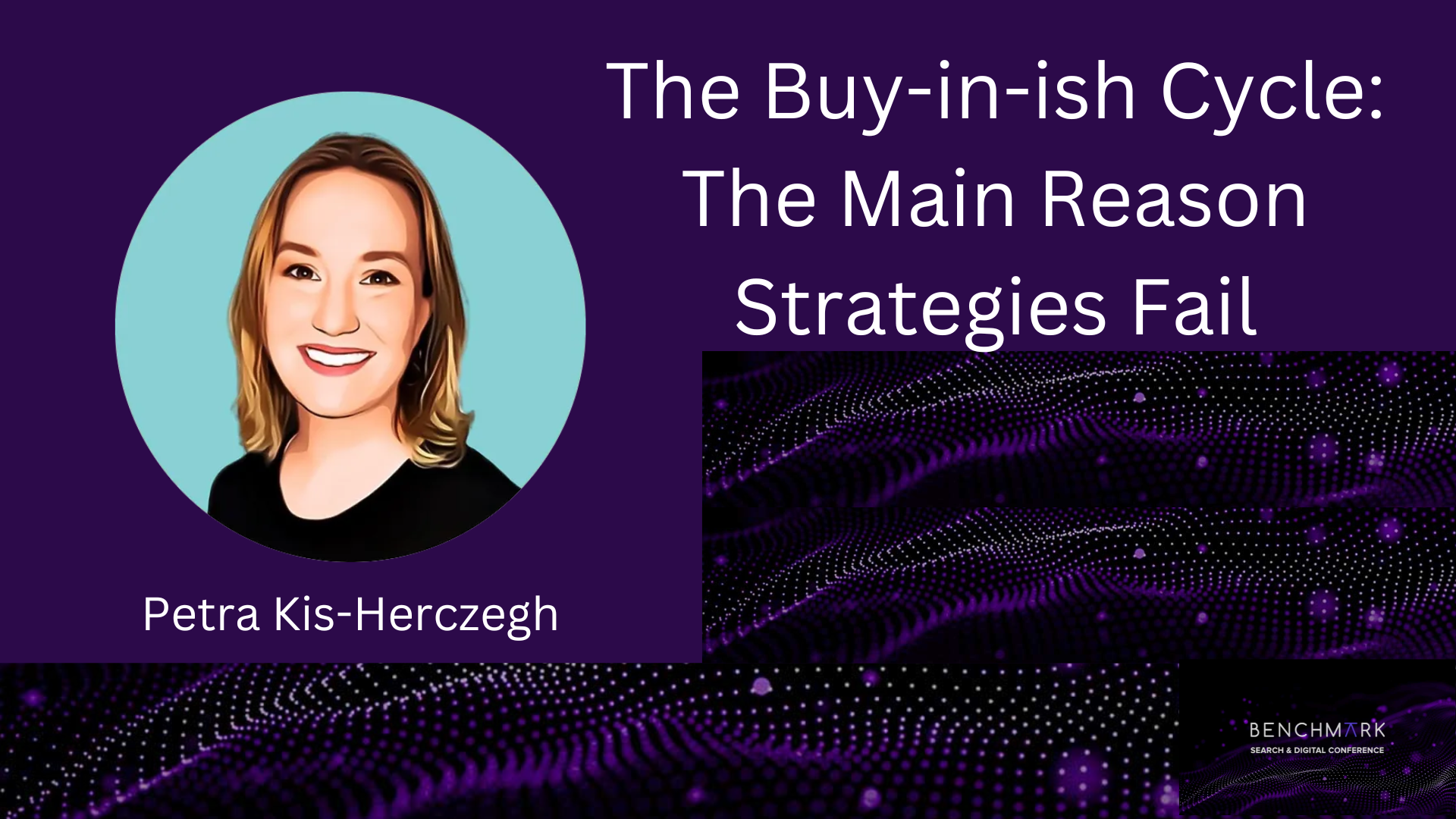Despite what you may think and what digital agencies always try to sell you in the world of SEO, it’s not just about short-term gains and quick wins. In fact, many companies – big and small – are now looking towards enterprise SEO strategies that focus on long-term success and prosperity. Enterprise SEO involves a more complex approach to search engine optimisation (SEO), where the goal is to create a sustainable and scalable SEO framework that can adapt to changes in the industry and your company’s goals.
Enterprise SEO is a holistic approach to SEO (and digital marketing) that should involve various teams across your organisation, including marketing, IT (web development), and content production and distribution across all digital marketing channels. Furthermore, with a focus on long-term success, enterprise SEO involves a more significant investment of time, resources and money, but the payoff can be substantial.
Whether you’re just starting out with enterprise SEO or looking to take your existing digital strategy to the next level, this article will provide valuable insights and actionable tips for achieving long-term success in the ever-changing world of SEO.
Enterprise SEO Buy-in: Selling SEO to the C-suite
The enterprise SEO landscape is constantly changing, and it can be difficult to keep up with the latest trends and best practices. However, by investing in a long-term SEO strategy, you can ensure that your website stays ahead of the competition and ranks highly in search engine results pages (SERPs).
To gain buy-in from the enterprise, start by educating yourself on the ever-changing landscape of SEO. Keep up with the latest trends and best practices by reading industry news and blogs, attending conferences, and networking with other SEO professionals. Then, create a comprehensive plan that outlines your goals and strategies for achieving them. Be sure to include measurable objectives so you can track your progress along the way (important!).
Once you have a solid plan in place, present it to all decision-makers within the enterprise. If possible, use data from your own research to demonstrate the potential benefits of investing in SEO stressing both the short-term and long-term return on investment (ROI). With a convincing case, you should be able to gain buy-in from even the most sceptical stakeholders.
How to tell the difference between short-term and long-term success in SEO
In order to win the long game in enterprise SEO, it is important to distinguish between short-term and long-term success. Short-term success can be defined as improving rankings, traffic, and ROI for a given period of time. Long-term success, on the other hand, is more concerned with building a sustainable foundation that will continue to generate results over the course of years or even decades.
There are a few key indicators that can help you tell the difference between short-term and long-term success:
- The focus of your efforts: If you’re primarily focused on improving your rankings in the search engines, then you’re likely more interested in short-term success. On the other hand, if you’re focused on building a strong foundation for your website with quality content and links, then you’re probably more interested in long-term success.
- The timeframe of your goals: short-term success is typically achieved within a few months, while long-term success takes years to achieve.
- The sustainability of your results: Results from short-term SEO campaigns are often not sustainable, as they rely heavily on tactics that can be easily replicated by your competitors. Long-term results, on the other hand, are much more difficult to replicate and are therefore more sustainable over time.
How to make SEO sustainable in the enterprise
There are a lot of moving parts to enterprise SEO, which can make it difficult to maintain sustainable results over time. However, there are a few key ways that you can make sure your enterprise SEO program is sustainable in the long run.
- Keep your keywords relevant. One of the most important things you can do to keep your enterprise SEO sustainable is to keep your keywords relevant. As your business changes and grows, so too will your customer base and their needs. Make sure you regularly update your keyword list to reflect the current state of your business and industry.
- Don’t put all your eggs in one basket. Another key to sustaining enterprise SEO results is to diversify your traffic sources. Don’t rely on just one or two channels for all of your traffic. Instead, spread out your efforts across multiple channels, including organic search, paid search, social media, email marketing, etc. This will help ensure that you’re not overly reliant on any one source of traffic and that you have a more well-rounded approach to marketing.
- Stay up-to-date on algorithm changes. The third way to sustain enterprise SEO results is to stay up-to-date on algorithm changes. Google makes hundreds of algorithm changes every year, some of which can impact enterprise SEO programs negatively if they’re not prepared for them. By keeping abreast of these changes and making adjustments accordingly, you can ensure that your program remains effective despite any algorithm
What are the best practices for long-term success in SEO?
There is no one-size-fits-all answer to this question, as the best practices for long-term success in enterprise SEO will vary depending on the specific nature of your business and your goals. However, there are some general principles that all businesses should bear in mind if they want to achieve sustainable success with their SEO efforts.
- Firstly, it is important to remember that SEO is a long-term game. It can take months or even years to see the full benefits of your efforts, so you need to be patient and committed to the process.
- Secondly, you need to make sure that your SEO strategy is continuously evolving and adapting to the ever-changing landscape of search engine algorithms and user behaviour. This means regularly reviewing your approach and making changes where necessary.
- Finally, perhaps the most important thing to bear in mind is that successful enterprise SEO requires a team effort. It is not something that can be achieved by one person working in isolation. You need to have buy-in from all levels of the organisation, from the CEO down. Only then can you hope to create a truly effective and long-lasting SEO strategy.
Integrating analytics into your marketing strategy
As the world of digital marketing becomes more and more complex, it’s important for enterprises to take a holistic and data-driven approach to their SEO strategy. This means incorporating analytics into every aspect of your marketing strategy, from your website and content to your social media and paid advertising.

There are a few key ways to do this:
- Use data to inform your keyword research. This will help you identify which keywords are most likely to drive traffic and conversions for your business.
- Track your progress over time. This will help you see which tactics are working and which need to be tweaked or abandoned altogether.
- Set up goals and KPIs. This will help you measure your success and ROI so you can continue to optimise your strategy over time.
- Test, test, test! Try different tactics and see how they impact your traffic and conversions. Then, keep the ones that work and ditch the rest.
By taking a data-driven approach to enterprise SEO, you’ll be able to win the long game and build a sustainable, successful online presence.
Who should be leading SEO in the enterprise?
As the role of SEO continues to evolve, it’s becoming more and more important for enterprises to have a dedicated SEO team. But who should be leading that team?
There are a few key qualities that make a great SEO leader. Firstly, they need to have a deep understanding of how search engines work. Secondly, they need to be able to translate that technical knowledge into actionable insights for the rest of the team. And thirdly, they need to be able to stay up-to-date with the latest industry trends and changes.
The ideal candidate for leading enterprise SEO would therefore be someone with both technical SEO expertise and strong people skills. They would need to be able to not only understand the complex algorithms of search engines but also be able to communicate clearly and effectively with other members of the team.
If you’re looking for someone to lead your enterprise SEO efforts, make sure they have these key qualities. With the right person at the helm, you can win the long game in enterprise SEO.
Conclusions:
After years of experience in enterprise SEO, we’ve learned that the key to success is playing the long game. This means being patient, consistent, and always striving to improve your SEO strategy. It can be tempting to take shortcuts or try to game the system, but this will only lead to frustration in the long run.
With a solid understanding of how search engines work and a commitment to providing quality content, you can win the long game in enterprise SEO.
Enterprise SEO is a marathon, not a sprint that requires strategy and foresight. It’s important to have someone at the helm who knows how to get the most out of your website and keep you ahead of the competition.
An experienced enterprise SEO team will have a deep understanding of how search engines work and what it takes to rank highly for your target keywords. They’ll also be up-to-date on the latest algorithm changes and SEO best practices. With their help, you can develop a comprehensive enterprise SEO strategy that includes both on-site and off-site optimization. This will ensure that your website is visible to your target audience and that you’re able to drive traffic and conversions.
If you’re looking to win the long game in enterprise SEO, partner with an experienced agency or consultant who can help you develop and execute a winning strategy.
Top SEOs to consider when looking for an SEO partner on your journey to success.
- Aleyda Solis – https://www.aleydasolis.com/
- Nick Wilsdon – https://torquepartnership.com/
- Judith Lews – https://www.decabbit.com/
- Grant Simmons – https://www.grantsimmons.com/
- Jeannie Hill – https://www.hillwebcreations.com/
- Bill Hartzer – https://www.billhartzer.com/
- Lidia Infante – https://www.lidia-infante.com/
- Chima Mmeje – https://www.zenithcopy.com/
- Moccand-Sayegh Sara – https://moccandsayeghsara.ch/
- Fili Wiese – https://fili.com/
Who is Petra Kis-Herczegh?
Petra Kis-Herczegh is a Senior Solution Engineer with an SEO focus at Yext. Petra’s job is to help potential and current clients understand the solutions Yext can provide, and how they can integrate with their tech stack and help them achieve their business goals.
Petra Kis-Herczegh started her SEO career in 2017 as an in-house SEO, quickly progressed to become an SEO manager, and later moved to the world of software, with the goal to amplify the voices of SEOs at the leadership level and help prove the value of organic search.


Leave a Reply